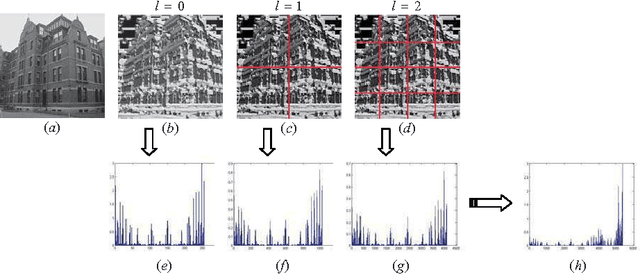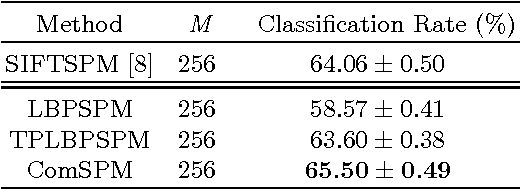Junlin Hu
UniADC: A Unified Framework for Anomaly Detection and Classification
Nov 10, 2025Abstract:In this paper, we introduce the task of unified anomaly detection and classification, which aims to simultaneously detect anomalous regions in images and identify their specific categories. Existing methods typically treat anomaly detection and classification as separate tasks, thereby neglecting their inherent correlation, limiting information sharing, and resulting in suboptimal performance. To address this, we propose UniADC, a unified anomaly detection and classification model that can effectively perform both tasks with only a few or even no anomaly images. Specifically, UniADC consists of two key components: a training-free controllable inpainting network and a multi-task discriminator. The inpainting network can synthesize anomaly images of specific categories by repainting normal regions guided by anomaly priors, and can also repaint few-shot anomaly samples to augment the available anomaly data. The multi-task discriminator is then trained on these synthesized samples, enabling precise anomaly detection and classification by aligning fine-grained image features with anomaly-category embeddings. We conduct extensive experiments on three anomaly detection and classification datasets, including MVTec-FS, MTD, and WFDD, and the results demonstrate that UniADC consistently outperforms existing methods in anomaly detection, localization, and classification. The code is available at https://github.com/cnulab/UniADC.
Multilingual Routing in Mixture-of-Experts
Oct 06, 2025Abstract:Mixture-of-Experts (MoE) architectures have become the key to scaling modern LLMs, yet little is understood about how their sparse routing dynamics respond to multilingual data. In this work, we analyze expert routing patterns using parallel multilingual datasets and present highly interpretable layer-wise phenomena. We find that MoE models route tokens in language-specific ways in the early and late decoder layers but exhibit significant cross-lingual routing alignment in middle layers, mirroring parameter-sharing trends observed in dense LLMs. In particular, we reveal a clear, strong correlation between a model's performance in a given language and how similarly its tokens are routed to English in these layers. Extending beyond correlation, we explore inference-time interventions that induce higher cross-lingual routing alignment. We introduce a method that steers the router by promoting middle-layer task experts frequently activated in English, and it successfully increases multilingual performance. These 1-2% gains are remarkably consistent across two evaluation tasks, three models, and 15+ languages, especially given that these simple interventions override routers of extensively trained, state-of-the-art LLMs. In comparison, interventions outside of the middle layers or targeting multilingual-specialized experts only yield performance degradation. Altogether, we present numerous findings that explain how MoEs process non-English text and demonstrate that generalization is limited by the model's ability to leverage language-universal experts in all languages.
AgentStore: Scalable Integration of Heterogeneous Agents As Specialized Generalist Computer Assistant
Oct 24, 2024Abstract:Digital agents capable of automating complex computer tasks have attracted considerable attention due to their immense potential to enhance human-computer interaction. However, existing agent methods exhibit deficiencies in their generalization and specialization capabilities, especially in handling open-ended computer tasks in real-world environments. Inspired by the rich functionality of the App store, we present AgentStore, a scalable platform designed to dynamically integrate heterogeneous agents for automating computer tasks. AgentStore empowers users to integrate third-party agents, allowing the system to continuously enrich its capabilities and adapt to rapidly evolving operating systems. Additionally, we propose a novel core \textbf{MetaAgent} with the \textbf{AgentToken} strategy to efficiently manage diverse agents and utilize their specialized and generalist abilities for both domain-specific and system-wide tasks. Extensive experiments on three challenging benchmarks demonstrate that AgentStore surpasses the limitations of previous systems with narrow capabilities, particularly achieving a significant improvement from 11.21\% to 23.85\% on the OSWorld benchmark, more than doubling the previous results. Comprehensive quantitative and qualitative results further demonstrate AgentStore's ability to enhance agent systems in both generalization and specialization, underscoring its potential for developing the specialized generalist computer assistant. All our codes will be made publicly available in https://chengyou-jia.github.io/AgentStore-Home.
Combined Descriptors in Spatial Pyramid Domain for Image Classification
Oct 03, 2012



Abstract:Recently spatial pyramid matching (SPM) with scale invariant feature transform (SIFT) descriptor has been successfully used in image classification. Unfortunately, the codebook generation and feature quantization procedures using SIFT feature have the high complexity both in time and space. To address this problem, in this paper, we propose an approach which combines local binary patterns (LBP) and three-patch local binary patterns (TPLBP) in spatial pyramid domain. The proposed method does not need to learn the codebook and feature quantization processing, hence it becomes very efficient. Experiments on two popular benchmark datasets demonstrate that the proposed method always significantly outperforms the very popular SPM based SIFT descriptor method both in time and classification accuracy.
 Add to Chrome
Add to Chrome Add to Firefox
Add to Firefox Add to Edge
Add to Edge